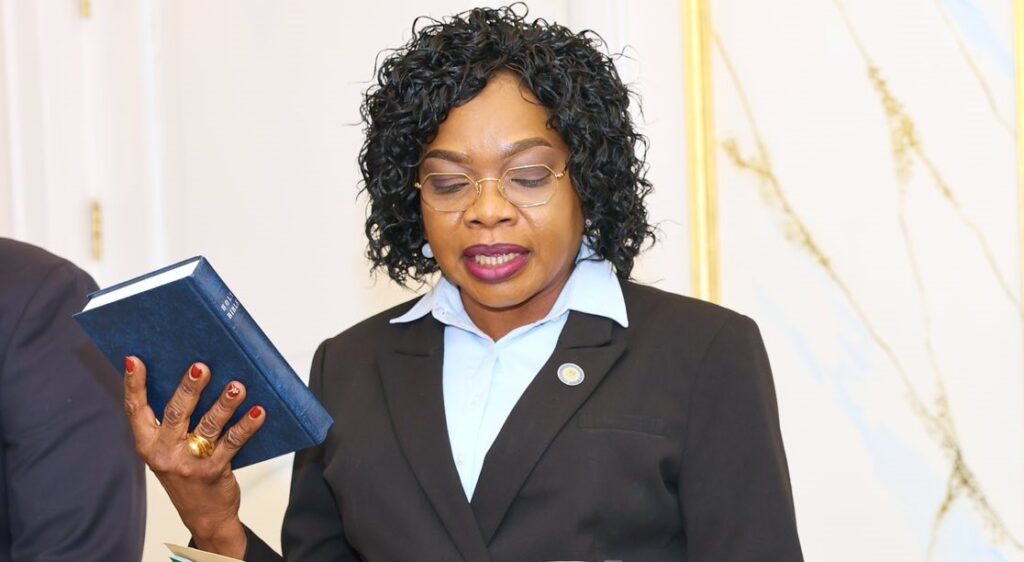South Sudan’s President Salva Kiir swore in a new health minister on Wednesday, reinforcing a breakaway faction of the SPLM-IO party in a move seen as sidelining detained First Vice President Riek Machar.
Sarah Cleto Rial, a former governor of Western Bahr el Ghazal, was appointed last week despite objections from Machar’s group, which holds the right to nominate the health minister under a 2018 peace deal.
The swearing in of the new health minister bolsters the SPLM-IO’s interim leadership under Peacebuilding Minister Stephen Par Kuol, who split from Machar’s group under Oyet Nathaniel in April and has pledged to work with Kiir’s government to advance the 2018 peace agreement.
Pal Mai Deng, spokesperson for Machar’s SPLM-IO, rejected the move, accusing Kiir of violating the peace deal.
“The president has chosen violence over implementation of the peace agreement,” Deng told Radio Tamazuj last week. “He acts with impunity.”
Machar, the First Vice President, remains under house arrest in Juba, while his loyalists dismiss Par Kuol’s faction as illegitimate.
At the swearing-in, Kiir urged Cleto to reform the health sector and called for unity.
Kuol, who attended the event, praised Cleto’s appointment as timely, calling the ministry “a place of life and death” requiring strong leadership.
Cleto pledged transparency and improved healthcare delivery.
However, Reath Muoch Tang of Machar’s SPLM-IO alleged that Cleto was directly appointed by Kiir’s party, not Kuol’s group.
“After tough questions were raised… the government called in Par Kuol to retroactively claim the appointment,” Tang said.
Political observer Edmund Yakani told Radio Tamazuj that the shift signals Kuol’s faction is now Kiir’s preferred peace partner, complicating Machar’s return to the transitional government before July 2025.
“Pending tasks of the peace agreement will witness great compromise,” he said, adding that Machar’s return before July 2025 is unlikely.
“The issue of lack of sincerity and honesty in the implementation of the R-ARCSS [Revitalized Agreement] is totally at risk. With the mounting pressure to hold elections by December 2026, a lot of shortcuts in executing the pending tasks of the R-ARCSS are likely to happen,” he said.
“The R-ARCSS status has already shifted from a multi-party agreement to one under the influence of political allies. This has significant implications for whether the agreement meets its required standards, and a potential collapse is imminent if the country fails to hold elections in accordance with R-ARCSS requirements,” he added.
Earlier this week, governance expert Dr. Remember Miamingi said the 2018 deal had effectively collapsed and called for a new agreement.
“What is needed now is not resuscitation, but replacement anchored in new legal commitments,” he said.
On Monday, Roar Haugsdal, the Norwegian Ambassador to South Sudan, called on the parties to the 2018 peace agreement to resume dialogue to find a path forward for the peace agreement to be implemented.
He contended that dialogue cannot happen when one partner to the peace agreement is in detention and that the developments in South Sudan amount to a political crisis which cannot be addressed by violence, but through dialogue.




